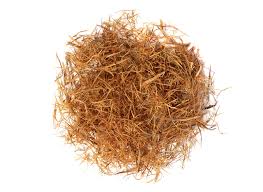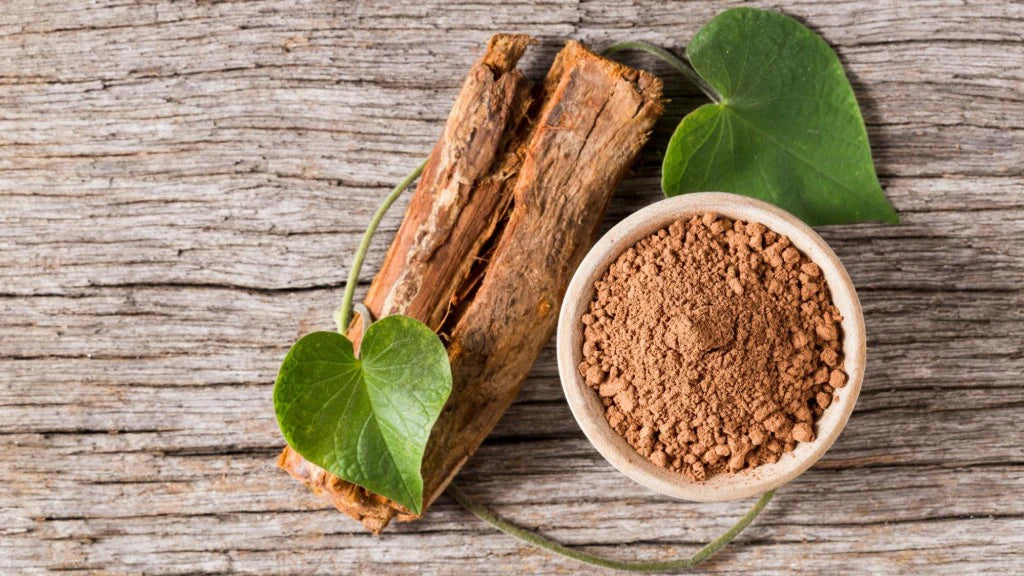Wilderness Teas
LIONS MANE MUSHROOM: Help boost MEMORY & FOCUS, calm anxiety, paired with Cats Claw Tea for arthritis
LIONS MANE MUSHROOM: Help boost MEMORY & FOCUS, calm anxiety, paired with Cats Claw Tea for arthritis
Couldn't load pickup availability
Lion's Mane has fantastic properties which have shown to help vastly improve memory and focus.
Studies have also shown that it helps battle day to day anxiety and even mild depression as well as supporting nerve regeneration. I don't know about you but we all need to add this to our routines!!,
This amazing gift from nature is paired with Cat's Claw bark which has been used to help with many aches and pains in the body.
Cat’s claw (Uncaria tomentosa) is a tropical vine which can grow up to 98 feet (30 meters) tall. Its name comes from its hooked thorns, which resemble the claws of a cat. It is found mainly in the Amazon rainforest and in other tropical areas of South and Central America.
The two most common varieties are Uncaria tomentosa and Uncaria guianensis. The former is the type often used in supplements in the United States (2Trusted Source).
The bark and root have been used for centuries in South America as a traditional medicine for many conditions, such as inflammation, arthiritus, inflamation and infections.
An introduction to Cat's claw bark
Arthritis relief: Small-scale studies suggest that cat's claw may help ease symptoms of osteoarthritis and rheumatoid arthritis.
One study found that a specific extract relieved knee pain in people with osteoarthritis during physical activity, but did not reduce pain while at rest or decrease swelling.
Another study found that people with rheumatoid arthritis who took cat's claw in addition to their regular medication had a reduced number of painful and swollen joints compared to a placebo group.
-
Immune system support: Cat's claw appears to have an immune-modulating effect, meaning it can both stimulate and calm the immune system.
- Small studies suggest it can increase the number of white blood cells, which are critical for fighting infections.
- Its antioxidant and anti-inflammatory properties may also play a role in its immune benefits.
- Anti-inflammatory effects: Lab and animal studies indicate that cat's claw can inhibit the production of inflammatory substances, which may help ease chronic inflammatory conditions.
- Gastrointestinal health: Historically, cat's claw has been used for stomach and bowel issues, and some lab studies suggest it can reduce gut inflammation.
While side effects of cat’s claw are rarely reported, available information to determine its overall safety is currently insufficient.
The high levels of tannins in cat’s claw may cause some side effects — including nausea, stomach upset, and diarrhea —
Case reports and test-tube studies support other possible side effects, including low blood pressure, increased risk of bleeding, nerve damage, anti-estrogen effects, and adverse effects on kidney function (16Trusted Source, 17Trusted Source, 18Trusted Source).
That said, these symptoms are rare.
The WHO says that an average daily dose is between 120-350 mg of dried stem bark for teas ( I use 200mg) or other extracts or 300–500 mg for capsules, taken in 2–3 separate doses throughout the day (21).
Studies have used daily doses of 60 and 100 mg of cat’s claw extract for treating rheumatoid arthritis and osteoarthritis of the knee, respectively (8Trusted Source, 13Trusted Source).
It is generally advised that the following groups of people should avoid or limit cat’s claw:
- Pregnant or breastfeeding women. Cat’s claw is not considered safe to take during pregnancy or breastfeeding due to a lack of safety information.
- People with certain medical conditions. Those with bleeding disorders, autoimmune disease, kidney disease, leukemia, problems with blood pressure, or who are awaiting surgery should avoid cat’s claw (1Trusted Source, 19Trusted Source, 20Trusted Source).
- People taking certain medications. As cat’s claw may interfere with some drugs, such as those for blood pressure, cholesterol, cancer, and blood clotting, you should speak to your doctor before taking it (19Trusted Source)
Share












